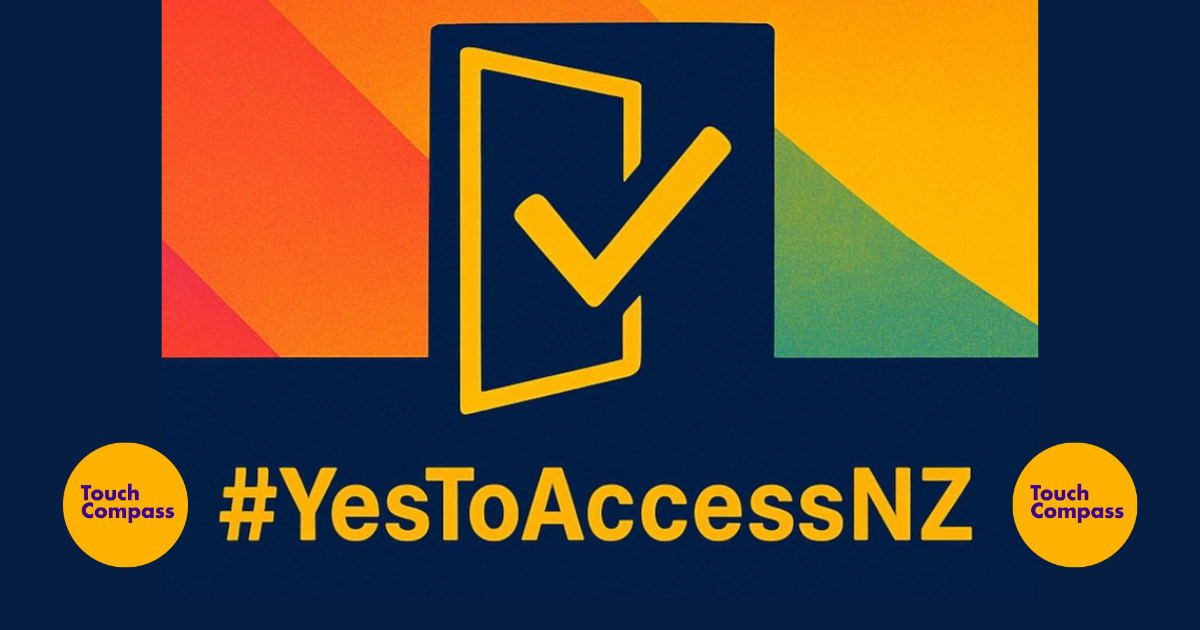
#YesToAccessNZ
Access is a right, Not an Invite!
Nau mai haere mai, welcome to our #YesToAccessNZ Campaign page.
Check out the information here on this page, view the videos below and we encourage you to sign our petition. Link below.
Change inclusion for Access, one day, 3 December, notice the difference.
It's our #TryAccessChallenge to you.
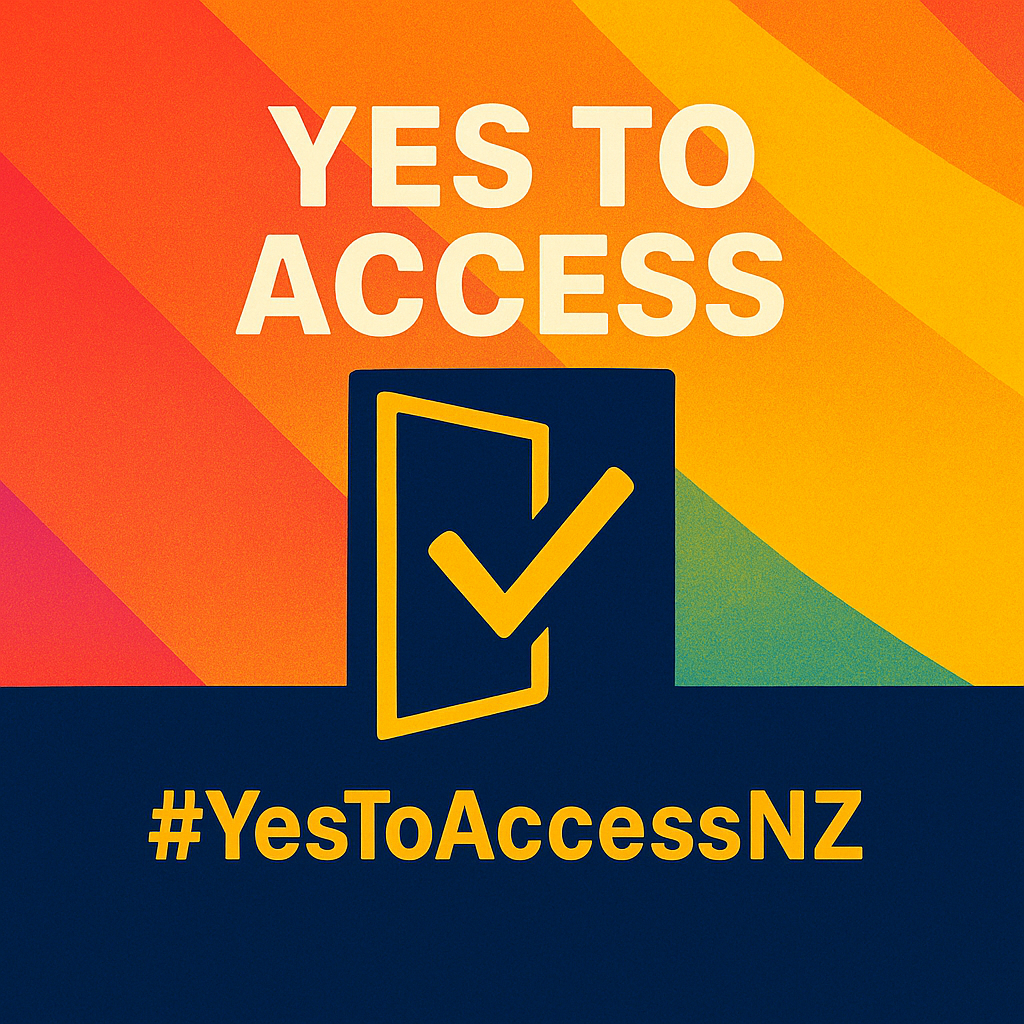
The #YesToAccessNZ petition logo
The #YesToAccessNZ petition logo
10.10 we’ve launched something powerful: the #YesToAccessNZ petition. For too long, the word “inclusion” has been used to describe a world that wasn’t built for us. It implies we’re guests, invited in only if we fit, explain, or adjust ourselves.
"Access" assumes we belong.
Access is designed with us, from the start.
Access is a right, not an invite.
Led by disabled artists from Touch Compass and beyond, this campaign asks you to make a simple but radical shift on 3 December 2025: Replace “inclusion” with “Access” in our language, our policies, and our practice.
And it starts TODAY with one action you can do in 30 seconds:
👉 Sign the petition HERE
Yes, we're artists and creators. This isn’t about performative change. It’s about building a world together where disabled people lead as artists, innovators, knowledge-holders, and visionaries, not afterthoughts or add-ons.
We’d be honoured if you strolled, rolled and backed this with us. The more voices, the stronger the call. 🌿
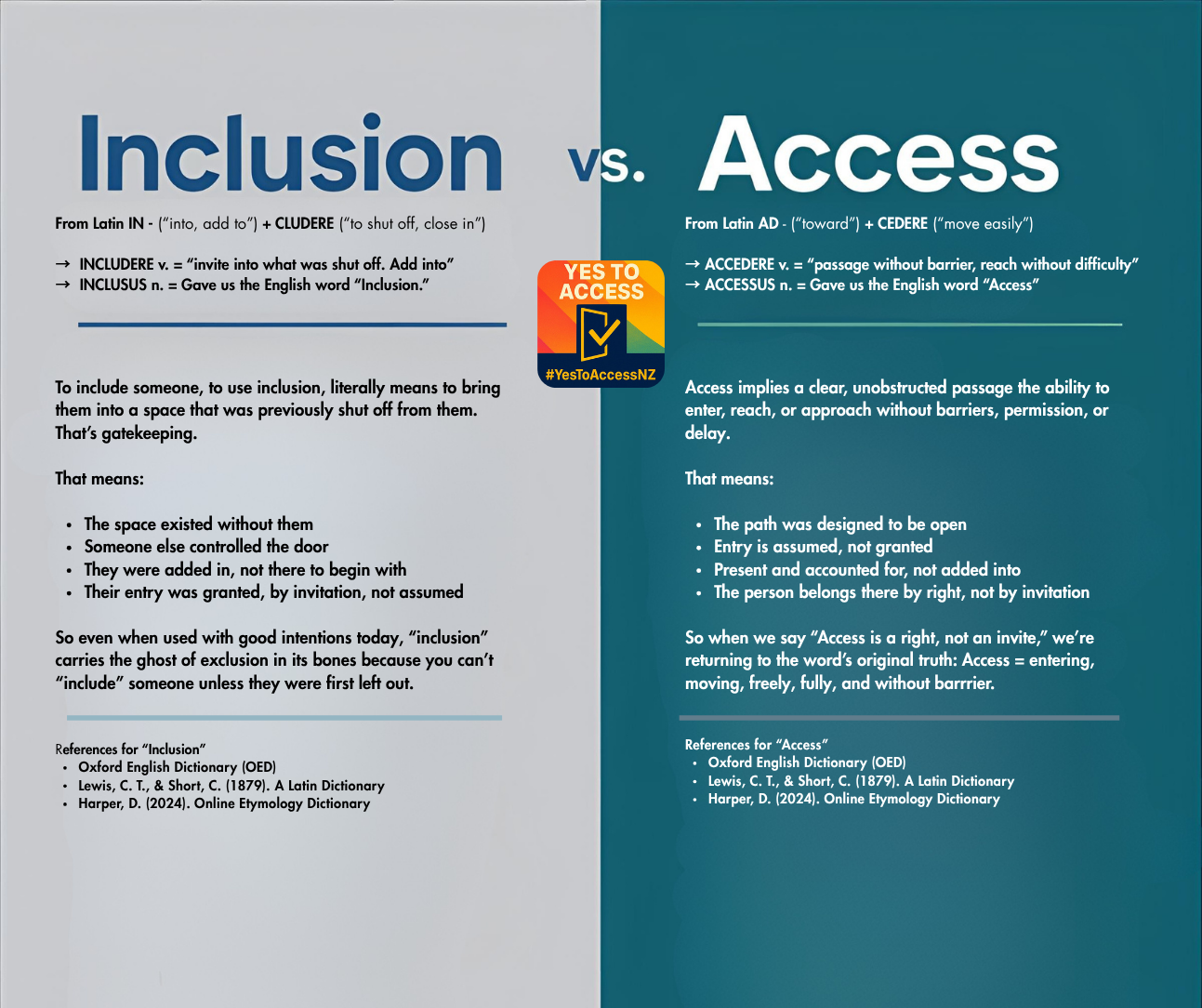
Inclusion vs. Access comparison
#YesToAccessNZ
Share it. Tag it. Call it out. Shift the mindset!
🔥 Access is a Right, not an Invite.
🚨 #YesToAccessNZ
🔥 Access is a Right, not an Invite.
“Inclusion” makes it sound like disabled people are guests. Invited in to places and spaces shut off from us. We’re not guests. We’re here. Always have been. We demand Access.
🧠 Words shape worlds
Replace "Inclusion" with "Access" - Why?
“Inclusion”
Makes it sound like you are invited into something that was shut off from you. That someone has to say yes before you can belong. It treats access as an invite, not a right. It doesn’t change the system, it just tries to fit people into a world that wasn’t made for them.
C'mon Touch Compass, give us some examples!
Here you go: Some quick examples of Inclusion.
A school says,
“We include disabled students in our arts programmes.”
Then, the buildings have no ramps, lessons aren’t in plain language, and disabled students weren’t asked how to design the space. That’s not access, that’s conditional permission. That's inclusion.
A venue says,
"We ensure our Blind and low vision and d/Deaf patrons are included."
Then, the venue hosts a 6 performance season of a show but only 1 session is sign language interpreted, and 1 session has audio description. That's inclusion.
An arts festival says,
“We include disabled audiences.”
Then, ticketing sites aren’t screen-reader friendly, there's no companion seating, the accessible seating is hidden at the back, or with poor sightlines and disabled artists aren’t programmed on stage. That’s inclusion.
A university claims,
“We’re inclusive!”
Then, lecture notes aren’t provided in accessible formats, tutorials aren’t captioned, and disabled students are expected to self-advocate for every adjustment they need just to get through a day there. That’s inclusion.
A theatre company says,
“We’re proud to include disabled performers!”
Then, most rehearsal spaces have stairs, costume fittings ignore access needs, and disabled performers are only cast in disability-specific roles.
That’s inclusion.
Access means:
“This place, event, or system was designed with you in mind from the start.”
- Access isn’t given, it’s built in
- Access assumes you already belong
- Access is disabled people as leaders, creators, and experts not guests
That’s why we say:
“Access is a right, not an invite.”
In short:
- Inclusion = “You can join us … if and when we allow it.”
- Access = “You were never left out. This was made for you. You have the power.”
The power is with YOU, say Yes to Access!
Swapping out the word “inclusion” for “Access” is more than a language fix. It's a mindset shift.
“Inclusion” makes it sound like disabled people are being invited in, like it’s optional. But we’re not guests. We’re already here.
“Access” means you’re building spaces, systems, and cultures where everyone belongs from the start. It’s about rights, not charity.
When we talk access, we’re talking about real change. In schools, in workplaces, in the arts, online, in our world.
It’s future-focused, justice-focused, and it’s how we make Aotearoa; New Zealand and Te Ao; the World, better for all of us.
Access. It's a Right. Not an Invite.
#YesToAccessNZ #AccessIsARight #AccessNotInclusion
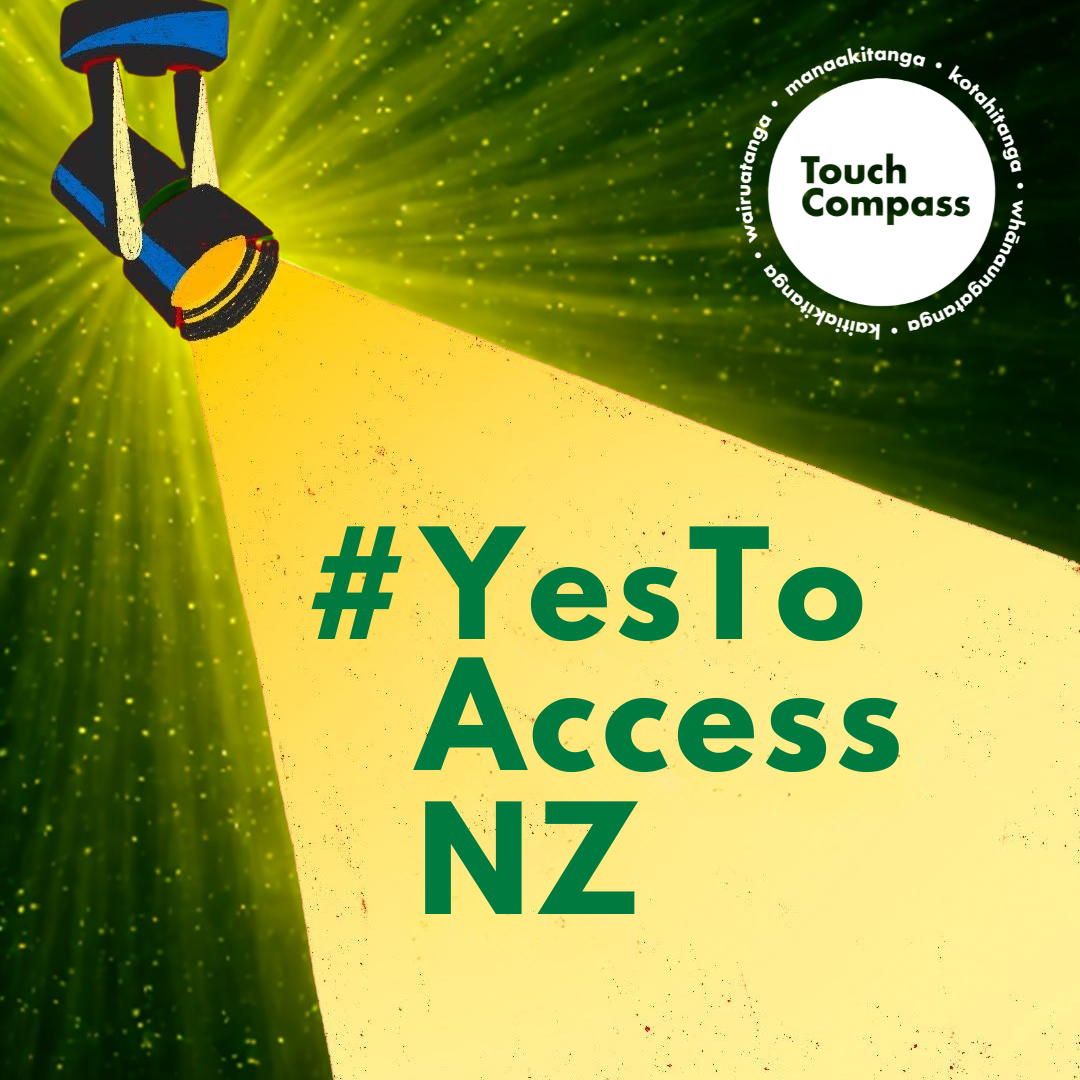
#YesToAccessNZ green logo
#YesToAccessNZ green logo
What does Access mean to you?
Answer our questionnaire - LINK HERE
- Tell us what access means to you?
- What would our world be like when access didn't have to be asked for?
🚨 #YesToAccessNZ
🔥 Access is a Right, not an Invite.
🎥 BELOW
- Video: Alisha McLennan Marler on what Access really means to her as an artist
- Video: Rodney Bell on why Access is where we should begin so we can dance everything
- Video: Lusi Faiva on navigating the arts when Access to training isn't there for you?
- Video: Dr Suzanne Cowan on Access as a space where Disability and Art meet
#YesToAccessNZ #AccessIsARight #AccessNotInclusion
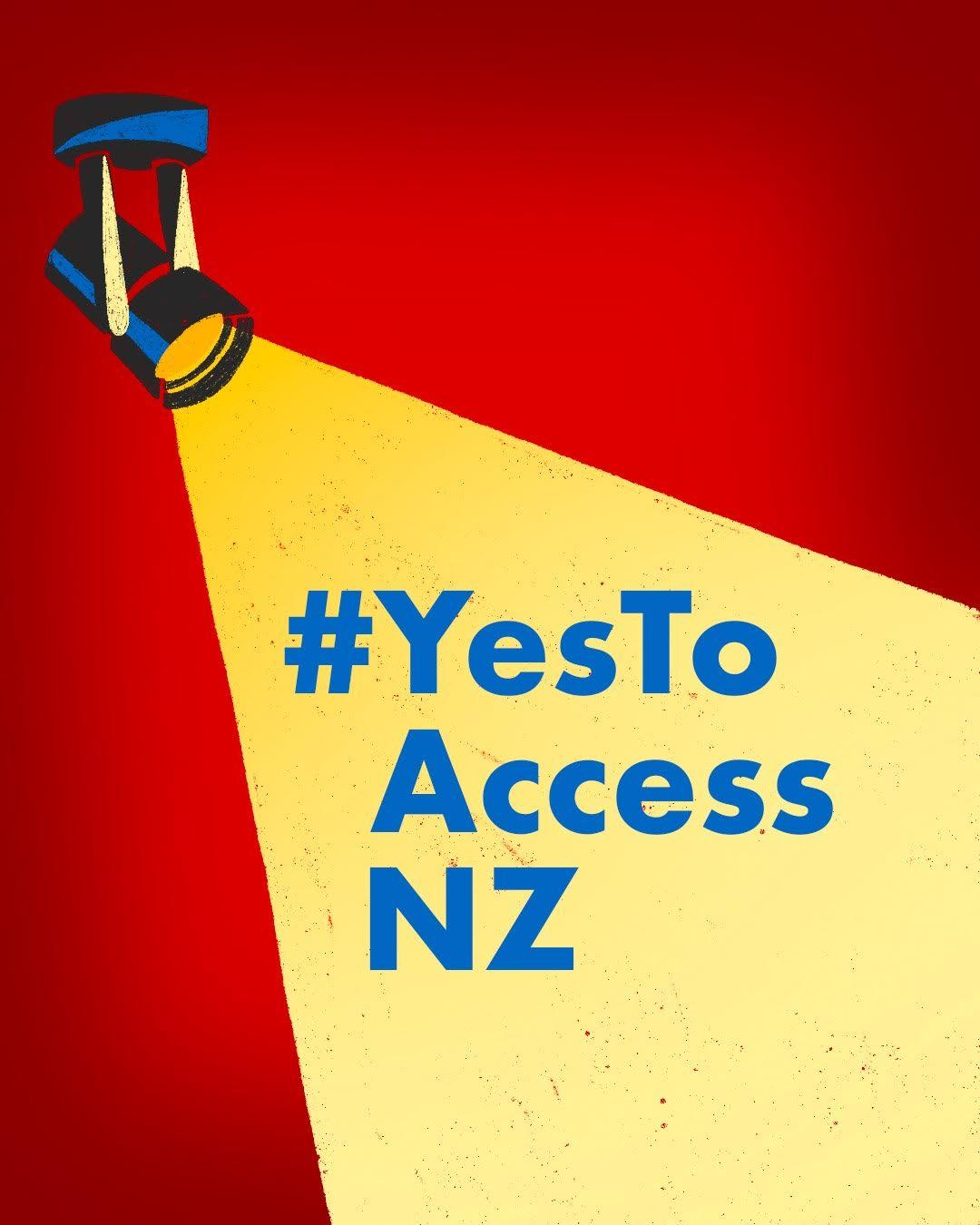
The #YesToAccessNZ logo designed by dancer and artist Lulu Qiu. A theatre spotlight appears top left of the image and from it spreads a glowing broad beam of light. captured within the beam of light is the hashtag "Yes To Access NZ"
The #YesToAccessNZ logo designed by dancer and artist Lulu Qiu. A theatre spotlight appears top left of the image and from it spreads a glowing broad beam of light. captured within the beam of light is the hashtag "Yes To Access NZ"
🔊 PRESS RELEASE: CAMPAIGN LAUNCH
Disability-Led campaign challenges language: Access is a Right, not an Invite.
Bold new arts-led campaign for Access launches "artivism" activation
Tamaki Makaurau Auckland, Aotearoa
15 September 2025
National disability arts organisation Touch Compass today launches its boldest campaign yet: “#YesToAccessNZ” Access is a Right, not an Invite.
The campaign challenges the use of the term "Inclusion" in public policy and social discourse, arguing that it reinforces the idea of disabled people as outsiders being allowed in, rather than as equal participants with all human rights to access.
He iti te mokoroa, nāna i kati te kahikatea.
The mokoroa may be small, but it cuts through the Kahikatea.
We know this is just one small effort against ableist inclusion but we are steadfast in our commitment. We will continue to champion access.
The campaign kicks off with the first of a series of disabled artist-led video shares, and an invitation to organisations and individuals to publicly mark the shift from inclusion to access.
“This is not a campaign asking for kindness or charity,” says Touch Compass,
“It’s a movement. Access is about power. We’re claiming it. We’re artists, creators and persons who advocate every day for a more accessible Aotearoa and Te Ao. So, this ‘artivism’ is our way of raising awareness and encouraging action.”
Through live activations, artist stories, digital campaigns, and a national petition, the movement will run from 15 September until 3 December 2025 International Day of Persons with Disabilities #IDPD when Touch Compass is eager to see individuals and organisations across Aotearoa and Te Ao replace "inclusion" with "Access" , even if it's just that one day they say. It'll be a start to a more equitable Aotearoa New Zealand and Te Ao the World.
Links:
Campaign Hub: touchcompass.org.nz/access
Social activity via facebook.com/touchcompass
National Petition: coming October on ActionStationNZ
Contact: access@touchcompass.org.nz
2026 Copyright Touch Compass Dance Trust
